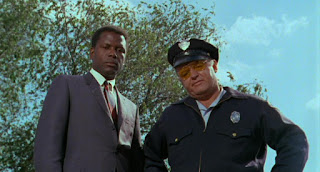Academy Award winning Best Picture, what could go wrong…?
I suppose I better just come out with the controversial
opinion right off the bat, I thought this film was really average. Perhaps I
had overhyped it myself, I was a huge fan of Steve McQueen’s previous film
Shame, the cast was absolutely loaded and it had a boatload of 4 and 5 star
critical rave review.
So what went wrong? There was something off about this slave
story, perhaps I was burnt on the subject – it’s not exactly an entertaining
topic, parts of the film are brutally hard to watch but I don’t think that was
it. I have been able to watch far harsher depictions of violence and far
grimmer subjects than this and still appreciate the film. This one just fell
flat for me.
Let’s focus on the positives first, McQueen, a director I
admire, assembled a dynamite cast and the lead performances from Ejiofor, Fassbender
and Nyong’o were excellent. For my qualms with their characters, which I will
get to, they certainly gave it their all, Nyong’o especially, whose character I
was probably most taken with. They were supported by a deep cast featuring Cumberbatch,
Woodard, Pitt, Dano & Giamatti.
This felt like a film of contradictions. For a film that was
marketed as grisly, realistic and pulls-no-punches, the flashy cinematography
seemed out of place for the subject matter. It was the sort of gritty realism
that the academy will like, that isn’t really gritty or realistic at all. This
did end up winning Best Picture and for me, it’s pure Oscar Bait.
The score, certainly my biggest problem with this film, by
Christopher Nolan favourite, Hans Zimmer, was awful and so out of place. It was
a slightly altered version of his Inception score (which was absolutely appropriate
and full of grandeur) and in this supposed gritty look at Slave America, it
felt wholly inappropriate, bordering on ridiculous and every time it would swell
would completely take me out of the picture.
The narrative is very basic, I struggled to see the
characters as anything other than characterchures; here’s sympathetic slaver,
here’s sadistic slaver; there was no wider depth to these men, or at least none
that was explored. I would like to have known more about Solomon Northup before
he became a slave, he was clearly talented, relatively well-off and well-to-do,
seemingly accepted in a society that I would have assumed would have been
largely racist and unaccepting of his success. How did he achieve this
acceptance? He seemed oblivious to the plight of his fellow Negro, did he have
no concern or opinion on slavery? Was he accepting of it or thinking of himself
above it? He does not even turn around and acknowledge the existence of the
slave who stares admiringly at him in a shop at the beginning of the film. If
that reading was explored, he could have reminded me of Andre Braugher’s
character in the film Glory, but they are left untouched, perhaps as they would
have been seen as a negative portrayal of our protagonist, but at least he
would have been a character rather than an attempt shell.
Ultimately I am removed from him and thus struggle to fully
get behind his story or gain any more insight than ‘slavery was awful’, which I
already knew going into the film.
This film has been compared to, and largely favourably over,
Django Unchained which has been derided for being more exploitative and over
indulgent. But I question whether McQueen’s effort is any less indulgent or
exploitative? Certainly the inappropriate gloss over the film seemed to wrestle
with the ‘gritty’ subject matter. It has been widely praised for its historical
accuracy on depicting slavery so perhaps I will have to bow to those with
greater knowledge and admit my own shortcomings in not ‘getting’ this picture
but this is not the type of film that gets me excited about cinema – it had
that same gloss as so many other recent historical adaptations that do well
come Oscar season – I’m thinking The King’s Speech. Its safe film making. I
didn’t get a wider statement on the world, I didn’t get characters I can invest
in, I did not have a fun time watching this film.
BEST SCENE: There
were two moments in the film where I felt the emotion I think the film was
trying to convey throughout, the first when Northup’s wife is separated from
her children as they are cruelly auctioned off and then when the sadistic Epps
forces Northup to beat Patsey.
BEST CHARACTER: Patsey – Nyong’o’s portrayal of this expert field-hand
who is subjected to rape and abuse at the hands of her master and his wife is
chilling. I felt her story more than our lead’s, she is sympathetic, she is
strong and we truly feel for her plight when she is broken. Whilst McQueen’s
focus is on the male characters in his films, here I felt that his female
characters were the most sympathetic and most real.
BEST QUOTE: Five hundred pounds ‘a cotton day in, day out. More than any
man here. And for that I will be clean; that’s all I ask!
RATING: ★★ – Another Best Picture winner that I ultimately
thought was disappointing and overrated. There is clearly some very powerful
imagery and gritty realism to this story, but when its main characters are so
under developed, I have a hard time buying into it.
MOVIES WATCHED:18
MOVIES REMAINING:983



